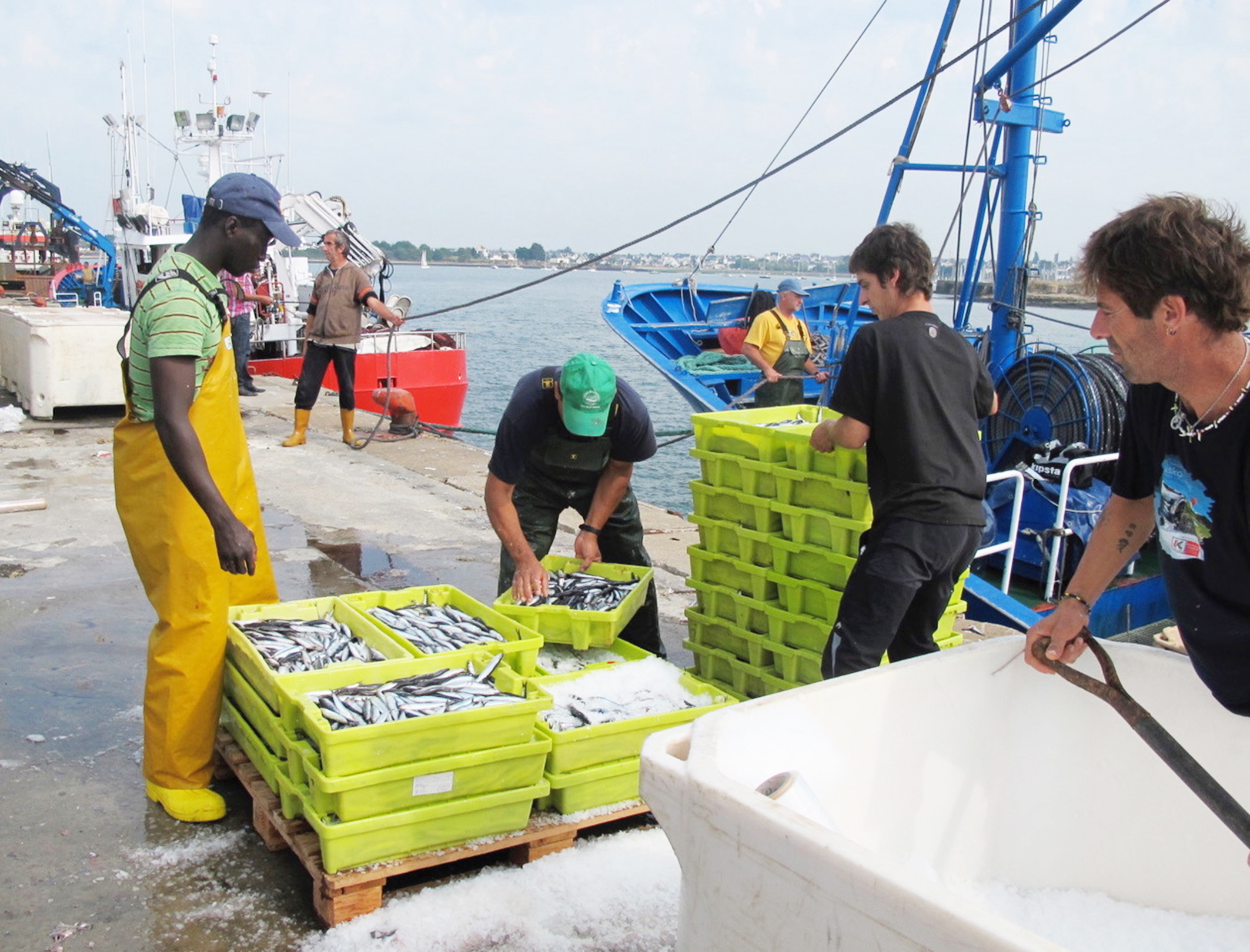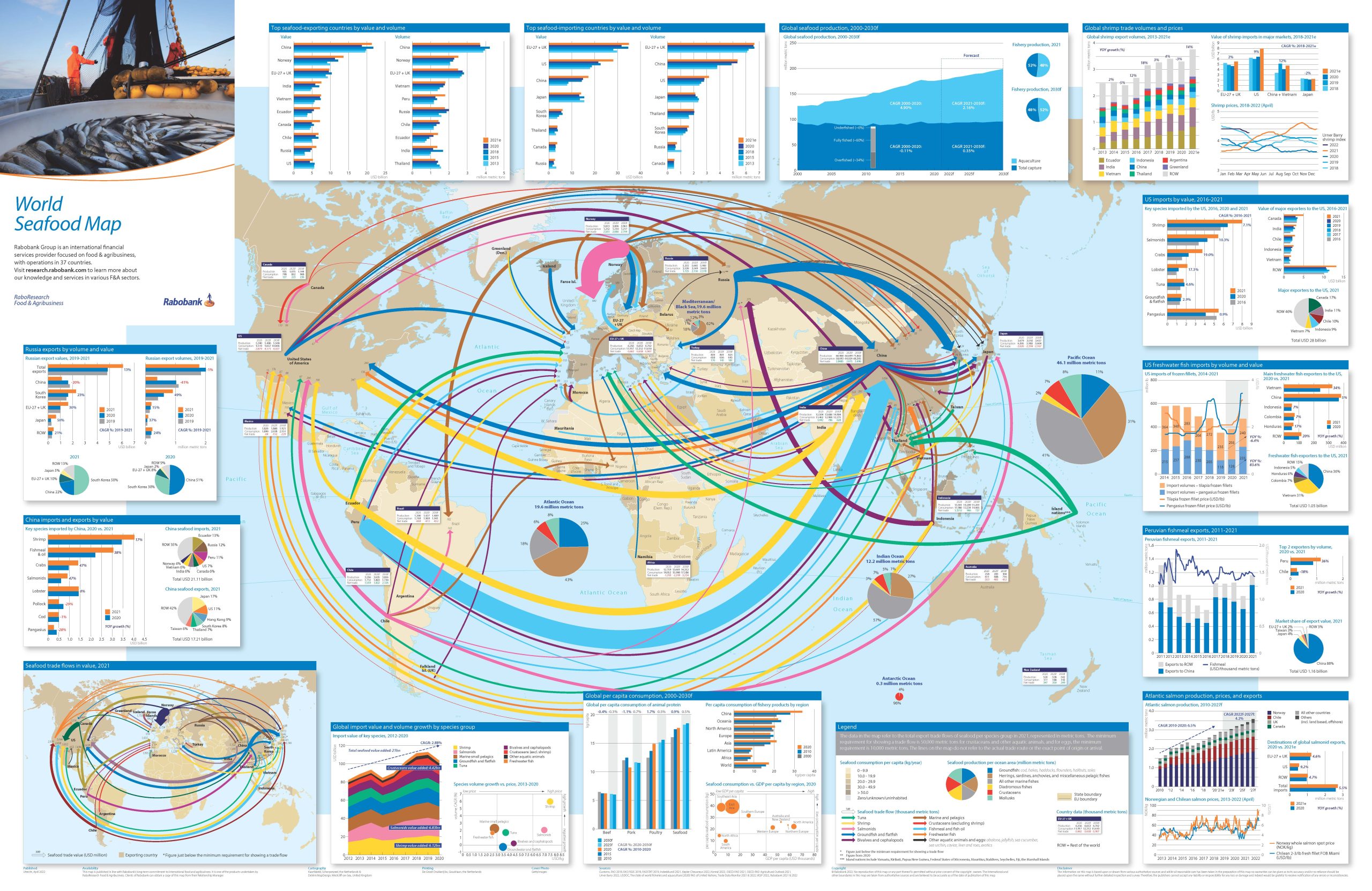
International trade in fish and fish products is booming. Production is increasing on the back of growing demand across the world. Preservation and transport of produce is becoming cheaper. Lower tariffs have helped, as has the coming in of 200-mile Exclusive Economic Zones.
More than half the value of exports is from developing countries of Low Income Food Deficit Countries (LIFDC). ICSF monitors this trade from the perspective of small-scale fishers, analysing international and regional trade regimes, disseminating information about relevant developments to fishworker bodies, civil society and policymakers.
ICSF explains ecolabelling and other forms of certification and their implications for small-scale fishing communities and food security. The aim is enhanced capacity of fisher organizations to deal with trade on an even keel.
ICSF follows negotiations related to fisheries subsidies and other fisheries-related debates at the World Trade Organization (WTO), and follows regional trade agreements, to inform small-scale fishers about their implications for their access to resources and markets.

ICSF continues to monitor and analyze information on developments in international trade and regional trade regimes and to disseminate information about such developments to fishworker organizations, CSOs and policy makers.
Rabobank Group is an international ¬nancial services provider focused on food & agribusiness, with operations in 37 countries. Visit research.rabobank.com to learn more about our knowledge and services in various F&A sectors. Source: RaboResearch Food & Agribusiness


International Collective in Support of Fishworkers (ICSF) A REVIEW OF THE DRAFT AGREEMENT ON FISHERIES SUBSIDIES (WT/MIN (22)/W/20) 13 June 2022 1. The International Collective in Support of...
Labels or Fables? The Myth of Sustainability examines the costs of certification of global fisheries and how it is allegedly biased towards industrial-scale fisheries. This dossier is a compilation of...
This section provides information on instruments relevant to fisheries trade. This section also includes decisions on trade and environment that are important for the fishing industry. https://www.icsf.net/wp-content/uploads/2006/09/930.ICSF108.pdf
This paper examines, from the fishery perspective of a developing country, the debate on the role of fisheries subsidies in the context of the negotiations relating to the General Agreement...
The workshop was co-hosted by the NGO Instituto Terramar. The document gives a detailed report of the presentations and discussions transpired in the workshop. The discussions at the workshop as...
The study focuses on Guinea-Conakry, Senegal,Benin, Togo, Ghana, Gambia and Ivory Coast, which are either important producers or consumers of fish and have significant trade links with one another. The...
A long-standing demand of the women of fishing communities in the region has been towards enhancing regional fish trade. It is against this background that the Workshop on Problems and...
This video provides an overview of the issues involved, and highlights many of the concerns of the actors in the fisheries sector. It also reports briefly on the workshop on...
This video provides an overview of the issues involved, and highlights many of the concerns of the actors in the fisheries sector. It also reports briefly on the workshop on...

The shrimp-turtle dispute at the World Trade Organization (WTO) between the United States and several Asian countries is the first case that involved a Multilateral Environmental Agreement (EU 2001). All...
From 11 to 15 September 2023, in Bergen, Norway, 43 Members of FAO and 19 observers from intergovernmental and international non-governmental organizations participated in the 19th Session of the Sub-Committee...
The UN Fisheries Resolution on Sustainable Fisheries of 9 December 2013 expresses concerns over the continued threat to marine habitats and ecosystems represented by Illegal, Unregulated and Unreported (IUU) fishing,...
As Chair of the Negotiating Group on Rules, I am today submitting a draft of Additional Provisions on Fisheries Subsidies for the attention of Ministers, in document WT/MIN(24)/W/10. This Addendum...
The report provides an overall assessment of the fish stock status under the prevalent fisheries management regime in the country, following the FAO’s sustainability indicators criteria based on the MSY...
The 34th Session of the Committee on Fisheries (COFI) highlighted the significance of inclusive and sustainable ocean economies to the 2030 Agenda for Sustainable Development. In aquatic food value chains,...
This document provides guidance for FAO Members when completing the questionnaire on the implementation of Article 11 of the Code of Conduct for Responsible Fisheries (CCRF). Download
The Sub-Committee on Fish Trade was established by the Committee on Fisheries to serve as a multilateral consultation forum for discussions on the international trade of fisheries and aquaculture products....
This document outlines the process FAO has undertaken to develop the first section of the FAO Guidance on Social Responsibility in the Fisheries and Aquaculture Value Chains (FAO Guidance), covering...
This document provides an overview of the efforts made towards implementing the recommendations of the 18th Session of the COFI Sub-Committee on Fish Trade (COFI:FT) involving the questionnaire on Article...
This document outlines the importance, boundaries, global cooperation pattern and overall content of the proposed work of FAO on the development of an FAO database on regional trade agreements (RTAs)...